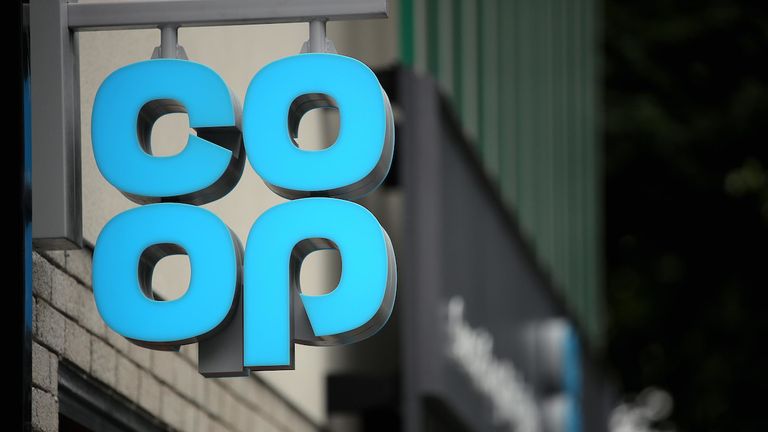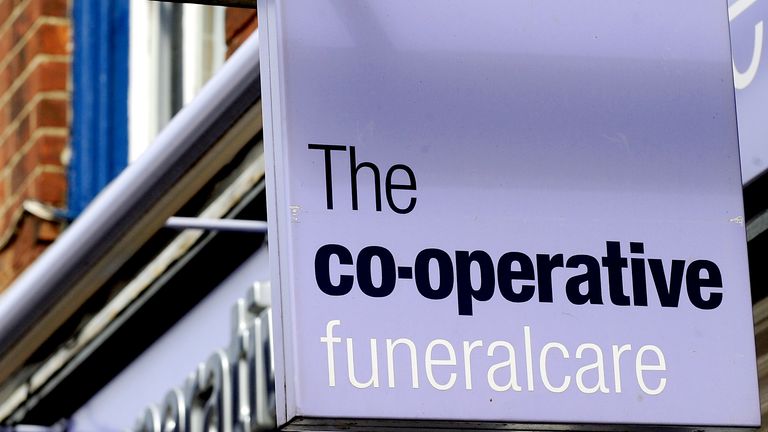
Co-op’s food business lost £33m in the first six months of this year as shoplifting cases hit a record high.
Executives have warned shop looting perpetuated by prolific offenders and organised criminal gangs “is becoming genuinely one of the most significant issues facing UK communities”.
Matt Hood, the managing director of Co-op Food, said police officers currently attended just two in 10 thefts – meaning thieves have to be let go.
He added: “One of the things that makes me most angry is those that claim this is a victimless crime – it is fundamentally not, as my store colleagues who have been verbally abused, or have had knives or syringes pulled on them, can all vouch for.”
Co-op is now urging every police force to take organised criminal activity against retailers more seriously – and calling for every Police and Crime Commissioner to set out clear plans for tackling “persistent and prolific offenders”.
Earlier this year, the retailer said it was experiencing heightened levels of retail crime – up 35% – with almost 1,000 incidents a day recorded in stores during the first six months of 2023.
One shop in inner London was “looted” three times in a single day – with physical assaults and verbal abuse against staff on the rise.
“It’s unacceptable and cannot continue. Our colleagues deserve to feel safe at work, and to go home to their families after their shift; you deserve a safe space to shop and our communities rely on us to be there for them,” Co-op chief executive Shirine Khoury-Haq wrote in an interim report.
Are food prices coming down?
Speaking to Sky News, Ms Khoury-Haq said recent decreases in food inflation are linked to retailers cutting prices – rather than the cost of commodities coming down.
Supermarket chains have been investing millions of pounds to make groceries cheaper for shoppers hit hard by the cost of living crisis.
Ms Khoury-Haq told Business Live with Ian King that Co-op spent £20m on reducing prices across key lines during the first half of 2023 – with a further £70m for the second half of the year.
The latest cuts are focused on more than 500 popular products in its food stores, with the business vowing to offer support during the winter – when “energy along with rising mortgage costs remain a concern for so many”.
She said: “Even where there is reduced inflation and commodity prices, we have not seen that transfer to the cost of goods yet.
“It’s going to be a while until we can see prices coming down for our retailers in terms of the cost we purchase.”
Co-op’s interim report covers the trading period from January to June.
While revenue fell slightly – to £5.4bn when compared with £5.6bn in the same period last year – it reported an operating profit of £43m against a loss of £1m in the first half of 2022.
The chief executive said Co-op has managed to accelerate growth, improve efficiency and reduce expenses and debt – adding she was “incredibly pleased” with its performance after sales rose by 4%.
Read more on Bank of England’s decision:
Interest rates frozen at 5.25%
Analysis: More pain if you have a mortgage
Pound falls amid protests – live updates
Changing trends
Ms Khoury-Haq also spoke to Sky News about Co-op Funeralcare – and how circumstances have changed since the coronavirus pandemic.
She said one in seven families are now choosing to have much simpler funerals – while others have been glad to return to traditionally bigger services now restrictions have eased.
The CEO said the business is now trying to encourage Britons to talk to loved ones about their wishes – and start providing “innovative, different solutions” for families.
“That includes the introduction of water cremation – we’re the first in our market to offer that,” Ms Khoury-Haq said.
“We believe that could signify the biggest shift in terms of how funerals are chosen in the last 120 years in a quite traditional industry.”














